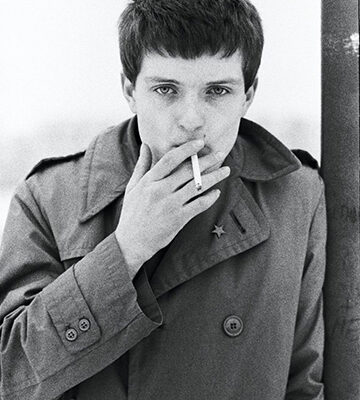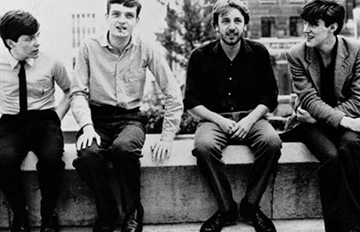- Home
- News
- What’s On
- Activities for Children
- Arts & Crafts
- Autos and Bikes
- Business events
- Car Boot & Auctions
- Charity events
- Churches & Religious
- Comedy
- Dance
- Days out & Local interest
- Education
- Exhibition
- Film
- Gardening & Horticulture
- Health
- Markets & Fairs
- Music
- Nature & Environment
- Spiritual
- Sport
- Talks and Discussions
- Theatre and Drama
- Business
- Local Information
- Jobs
- Deaths
- Charity events
- Contact Us
It was forty two years ago today . . .

On the anniversary of Ian Curtis’ death – a tribute.
A day before going on tour to the United States, Ian Curtis committed suicide. He hanged himself in the kitchen of his home. He hung on a clothesline while Iggy Pop played on his turntable. He put an end to Joy Division and created a romantic myth around him. The person died, the legend was born.
“There is a body spinning in the kitchen.” It was written by Jota, from Los Planetas, who used this phrase in the song “Desorden”, a tribute to the band that disappeared forty years ago, when Curtis, the epileptic and depressing singer, ended his life.
That his figure has inspired thousands of musicians is not a coincidence. Curtis emerged from the miserable Macclesfield in the 1970s in the United Kingdom, a poor, industrial time when talent was buried for long shifts in small jobs.
He lived very fast and did in a few years what normal people would not achieve in several lives. It was not only the eternal memory gained thanks to a cult band in English music. At the age of 23 he had raised a group, married, had a daughter and had plenty of time to fall in love with a Belgian journalist with whom to despair his wife, Deborah.

He was obsessive, manipulative with Deborah, and suffered from a bipolar disorder that made him spend hours from wanting to fix problems with his wife to breaking his neck with a rope.
From the time Joy Division, then known as Warsaw, formed at a Sex Pistols concert in 1976, to the tragic morning of May 18, 1980, everything went up and down.
Curtis came close to brushing the lives of his idols David Bowie and Lou Reed, but he did so stuffed with medication for the epilepsy attacks that started in 1978. He hardly enjoyed his success. It was gradually weakened by the ravages of a meteoric career.
He fell collapsed in the middle of concerts, he suffered terror to go on stage and fear of the death that haunted him. He attempted suicide only a few months before hanging up. And no one seemed to notice.
“We didn’t begin to listen to and understand Ian’s lyrics until he died. There we realized everything he was experiencing inside,” Bernard Summer, guitarist of the group, told the New York Times.
When he put an end to his life, an exceptional composer left, helping post-punk to be born and groups like The Cure to find a path to move on.
His depressing letters were quickly emerging from his troubled mind. Ian appeared at the recording sessions with a bag full of notes. When his classmates started playing, he would take out one of those pieces of paper and create the song.
LOVE WILL TEAR US APART
On May 18, 1980, Curtis made his still-wife promise that she would let him sleep alone and that he would not return until he had left to join his groupmates to leave the United States.
After watching Werner Herzog’s movie “Stroszek” and clicking Iggy Pop’s “The Idiot”, he wrote a suicide letter and it was over. “I can hear the birds singing,” he said in the note.
His ashes rest in the Macclesfield cemetery, those of Joy Division became New Order. His tombstone is the last remaining redoubt for band lovers. It is not as famous or as attractive as that of its idol Jim Morrison at the Pere-Lachaise in Paris, but the epitaph “Love Will Tear Us Apart” was written on it, probably the band’s most famous song.
The stone has been stolen on several occasions, in the same way that Ian stole his own talent from music when he decided to leave forty-two ago.
Manuel Sánchez Gómez


You must be logged in to post a comment Login